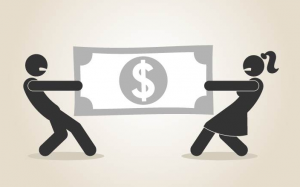
Factors to consider, according to financial planners, include the type of debt you are considering, the amount of interest you pay and how long your obligation will last.
Some advisers see debt as the fatal flaw in personal finance plans and they advise getting rid of it as quickly as possible. Consider the cost: As of late May this year, the average fixed interest rate on a credit card was 12.52 percent. Variable rate cards come with an even higher rate – 16.03 percent on average. That’s a compelling reason to opt for the pay-down-the-debt approach. Ultimately, having more money at the end of the process is a cogent argument.
Mortgages
Mortgages often are the largest debt a person or family carries. They don’t usually come into consideration in this debate. Mortgage interest rates generally are lower than those on consumer debt. Also, they are tax-deductible.
Retirement Savings
On the flip side, consider these facts about saving. The most frequent target of savings is retirement. Workplace plans that sometimes offer an employer contribution also make this option desirable. Look into 401(k) or 403(b) opportunities.
Such plans withdraw the employee’s money before it is considered income, so there are tax savings. The arguments for putting your money into retirement options is great since many Americans find themselves facing the rocking chair with not enough padding to live on.
Still there are those who argue that having a cushion for retirement while still dealing with debt is not a good place to be. Make your decision based on the facts of your personal finance picture.
Of course, there is no rule that says you can’t do a little of both. Looking for an adequate but not cushy retirement option while putting the rest of your excess into debt payment may be the road you want to travel, Run the numbers and make them fit your own circumstances. Either way, there is compounding to consider: The interest on either debt or retirement savings goes on just the same. Take that into consideration while you ponder the question. There’s a good middle ground for you.



